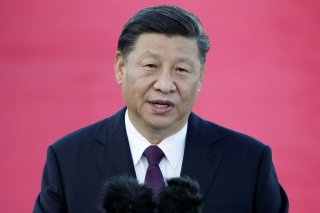Sure China Did a Better Job With Coronavirus Than SARS. That's Not Saying Much
Lots of room for improvement.
The World Health Organization (WHO) has praised the Chinese government for its handling of COVID-19 compared to the SARS outbreak in 2003. However, the argument that China should get credit for doing “better than SARS” sets an appallingly low bar. It is important to remember what has stayed the same: The Chinese Communist Party (CCP)’s attempts to hide, censor, and spread misinformation about COVID-19 inhibited an effective early response and hastened its spread around the world. The CCP prioritized saving face over saving lives — had the Chinese government properly intervened three weeks earlier, it would have reduced the number of cases by 95 percent across China.
The praise for China’s response is centered on two points:
-
The Chinese government did not report the SARS virus to the WHO until four months after the first case was reported. In comparison, China informed the WHO of COVID-19 three weeks after the first case.
-
China’s Center for Disease Control and public health system are better equipped to handle a public health crisis. Laboratories did not sequence the SARS genome until five months after the initial outbreak. This time, Chinese scientists sequenced the Coronavirus on January 10, just one month after the first reports of a new virus in Wuhan.
While both the notification time and the lab sequencing were an improvement, the Chinese government’s response still left much to be desired. Most notably, China tried to hide the virus early on in late December and early January. Even after local health authorities confirmed the existence of the virus, the Wuhan government took no action to slow the spread of the disease and even allowed a potluck banquet for 40,000 families to continue. It was only when the outbreak became too large to be contained that it shifted its response to another draconian extreme.
China spread misinformation and censored non-state sanctioned information, even after the outbreak became widespread. The Public Security Bureau punished doctors, including the now deceased Li Wenliang, when they tried to share news about the coronavirus with the medical community. The government censored WeChat discussions using COVID-19 related key words as well as criticism of Xi Jinping. More recently, China has accused the US Army of starting the outbreak and expelled American journalists from the country.
Finally, the Chinese government rejected international cooperation early on during the outbreak. Having American and WHO experts on the ground during the early weeks of the outbreak would have provided critical information on the epidemiology and the molecular virology of the virus, both necessary for developing a vaccine for COVID-19.
It is true that the Chinese government’s response to COVID-19 was an improvement from its handling of SARS in 2003. However, that does not mean that the CCP had a well-executed response. Had the Chinese government listened to the medical community, been transparent, and worked with international partners early on, we may not be living with this global pandemic today.
This article by first appeared in 2020 on the AEI Ideas blog.
Image: Reuters

